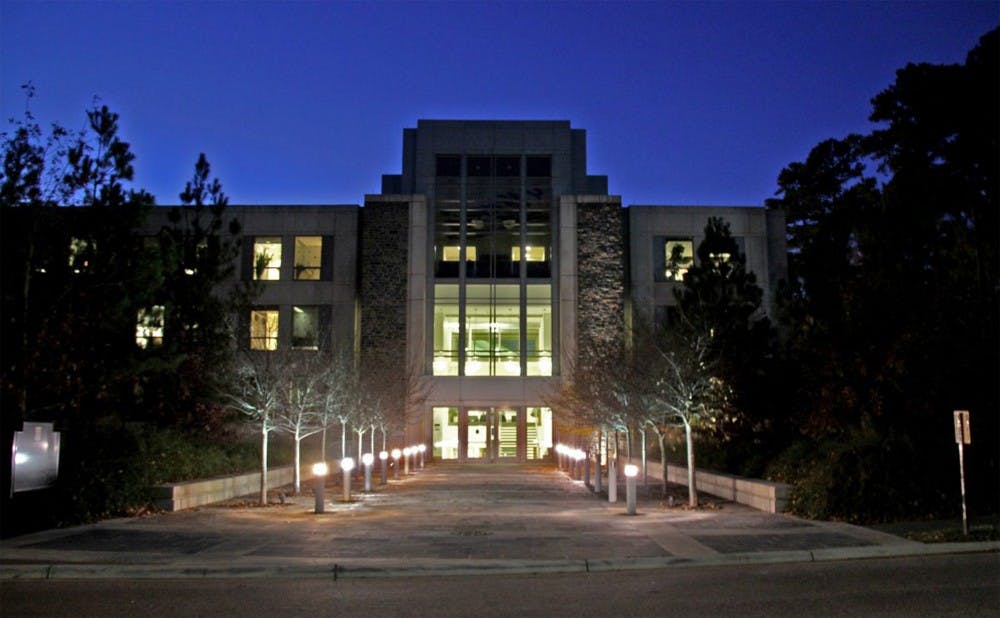Before COVID-19 became a global pandemic and confined most Americans to their homes, two students at the Fuqua School of Business raised more than $4,000 for medical supplies to send to Wuhan, China, where the virus originated.
Ying Bao, a master of management candidate in Fuqua, and Daewe Kim, a master of quantitative management candidate in the business analytics program, worked together to raise $4,343.01. They put this money toward multiple air sterilizers and heartbeat monitors, as well as noninvasive ventilation equipment for several hospitals in Wuhan, Bao said.
Most of the donations were between $20 and $50, and were contributed by Fuqua students, with a few from faculty members. With the help of a Fuqua alumnus living in China and a group of Chinese Fuqua alumni called “One for All, All for One,” Bao and Kim were able to navigate Chinese supply chains to get the equipment securely delivered to six different hospitals in Wuhan.
Bao said that she got the idea for the fundraising project after speaking with her parents, who live in China. They told her that hospitals in China were facing major shortages of medical supplies. At the same time, Kim recognized that healthcare personnel were saving the lives of others while lacking the protective equipment necessary to keep themselves safe, and he wanted to do something to help, he wrote in an email.
“I believe that as a Duke Fuqua student, I have the ability and I should use my ability to do something to help others,” Kim wrote.
When Bao initially teamed up with Kim, she said that they were “thinking pretty big,” and wanted to use the Fuqua name to attract attention and donations. However, Fuqua administrators nixed that plan and they were forced to scale down their ideas, choosing instead to focus their attention on Fuqua students.
Before proceeding with their project, Fuqua administrators asked Bao and Kim to come up with a detailed plan of action. They created a 10-page slide deck laying out information about their target donors, delivery plan, marketing strategies and fundraising goals. Their minimum goal was $2,000.
The two students presented their project to students in their master’s program classes, explaining how they would arrange for supplies to be delivered to hospitals in Wuhan and asking for financial contributions—though their initial plan faced significant challenges.
Bao said that one of her initial challenges was convincing her fellow students that the coronavirus situation was dire enough to merit their donations.
“At the time, I don’t think people were taking the virus very seriously,” she said.
Bao and Kim also faced racial discrimination. In February, before coronavirus became a serious problem in the United States, many people still called it the “Chinese virus.” Bao said that most donors to the fundraising campaign were Asian and Asian-American students.
She said that one of the next steps she and Bao are considering is to spread information to students about COVID-19, particularly with regards to anti-discrimination efforts.
One of the most time-consuming and difficult parts of the process was finding suppliers who would sell them medical equipment at a reasonable price, due to global shortages, Kim said.
But both Kim and Bao were moved by the support of Fuqua students, faculty and alumni. Kim cited the “team Fuqua spirit,” explaining that the project’s success wouldn’t have been possible without the help provided by Chinese Fuqua alumni in navigating distribution chains.
For Bao, the highlight of the fundraising project was how much she learned about coronavirus itself, but also about nonprofit work. She said that because of this project, she might now consider working for a nonprofit organization.
Get The Chronicle straight to your inbox
Signup for our weekly newsletter. Cancel at any time.

Anna Zolotor is a Trinity senior and recruitment chair for The Chronicle's 118th volume. She was previously news editor for Volume 117.

